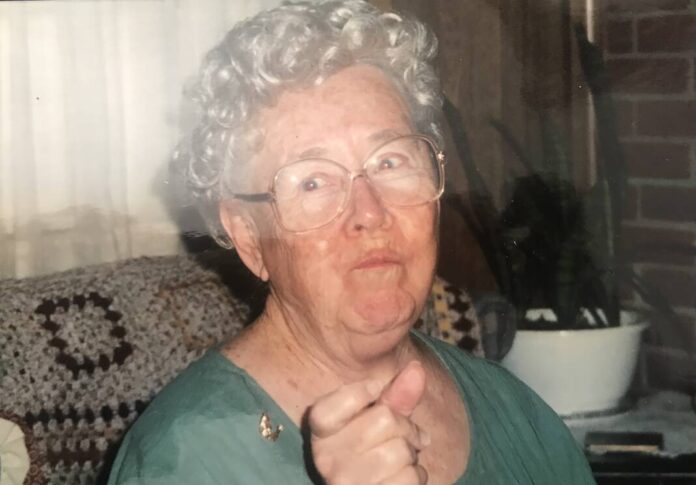
SHAWNEE TOWNSHIP — For decades, Helen Jean Spyker shared Allen County history with anyone who would listen.
The late businesswoman, who was known for her work at the Elmview Store and her successful opposition to the annexation of Shawnee Township into Lima, dedicated her free time to the preservation of Native American culture and local history, passing on stories few others knew or wanted to tell.
Spyker, 98, died on Monday, Dec. 13.
“She was the keeper of the story,” recalled her nephew, Jonathon Spyker. “This community has lost a voice, and now it comes to us to pick up that voice and continue the story.”
Spyker defied expectations in a male-dominated era.
Born in 1924, Spyker never married nor had children.
Instead, she immersed herself in Elmview Housewares, the family-owned grocery, hardware and housewares store she founded with her brothers after World War II.
When her brothers divested their share of the family business in the 1950s, Spyker continued selling housewares at the Elmview Store, bringing in Hallmark greeting cards and eventually opening her own Hallmark store.
“She was a young lady in a man’s world,” Jonathon Spyker said. “She had to carve out this business on her own and on her own terms. The world wasn’t overly friendly to that, and she had to fight tooth and nail.”
Spyker became a central figure in the founding of former village Fort Shawnee, which was incorporated in 1960 to prevent the city of Lima from annexing industrial parts of Shawnee Township.
Her brother, Joel, was the “lightning rod” of the movement, Spyker’s nephew recalls, whereas Helen Spyker was the “promoter.”
Spyker knocked on her neighbors’ doors and started The Shawnee Bulletin, an anti-annexation newsletter.
“I tell you it was a good time to be alive,” Helen Spyker told The Lima News in 2010, when the village celebrated its 50th anniversary. “It was like somebody going to a state basketball game and being a champion. It was a community spirit like a super football game. It was a really, really good time to live in Shawnee.”
Spyker, whose ancestors fought in the Revolutionary War and War of 1812, became an amateur historian herself, recounting long-forgotten stories about the region’s past and, at times, correcting false accounts.
She took a keen interest in Native American culture, organizing elaborate powwows and re-enactment ceremonies so the cultures would not be lost to history, her nephew recalled.
“It was important that people knew the Native American culture,” Jonathon Spyker said. “That they knew the story—the right story, not the stories that were painted because we wanted to take their land and take advantage of them, but the stories that these were people that were here
“… She just felt they had a right to tell their story.”
The rest of the Spyker family, he said, now must carry on Helen Spyker’s work.
“There’s a lot of stories that need to be told,” he said. “She was one of those individuals that believed in putting that story out there and making it real.”
